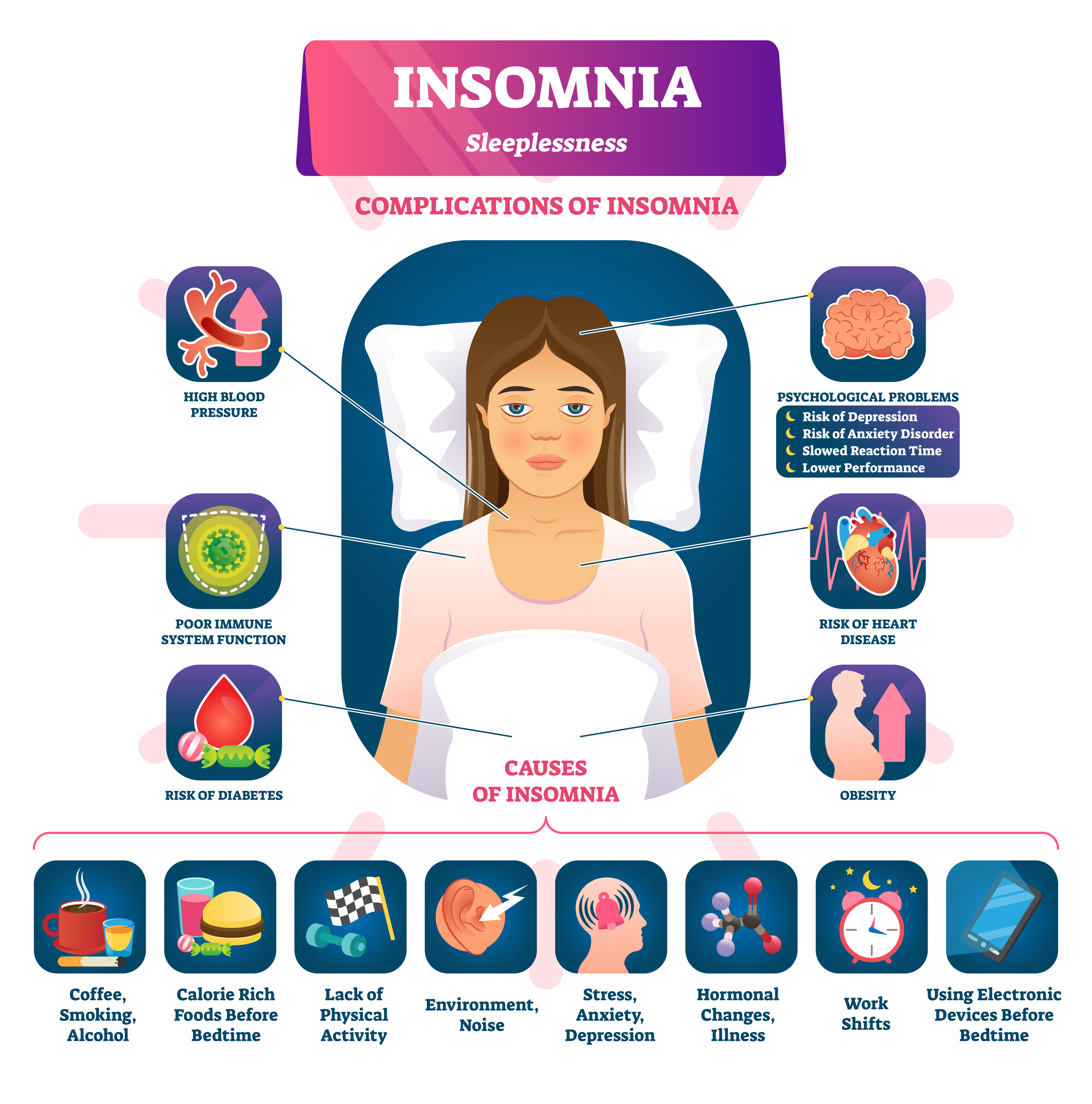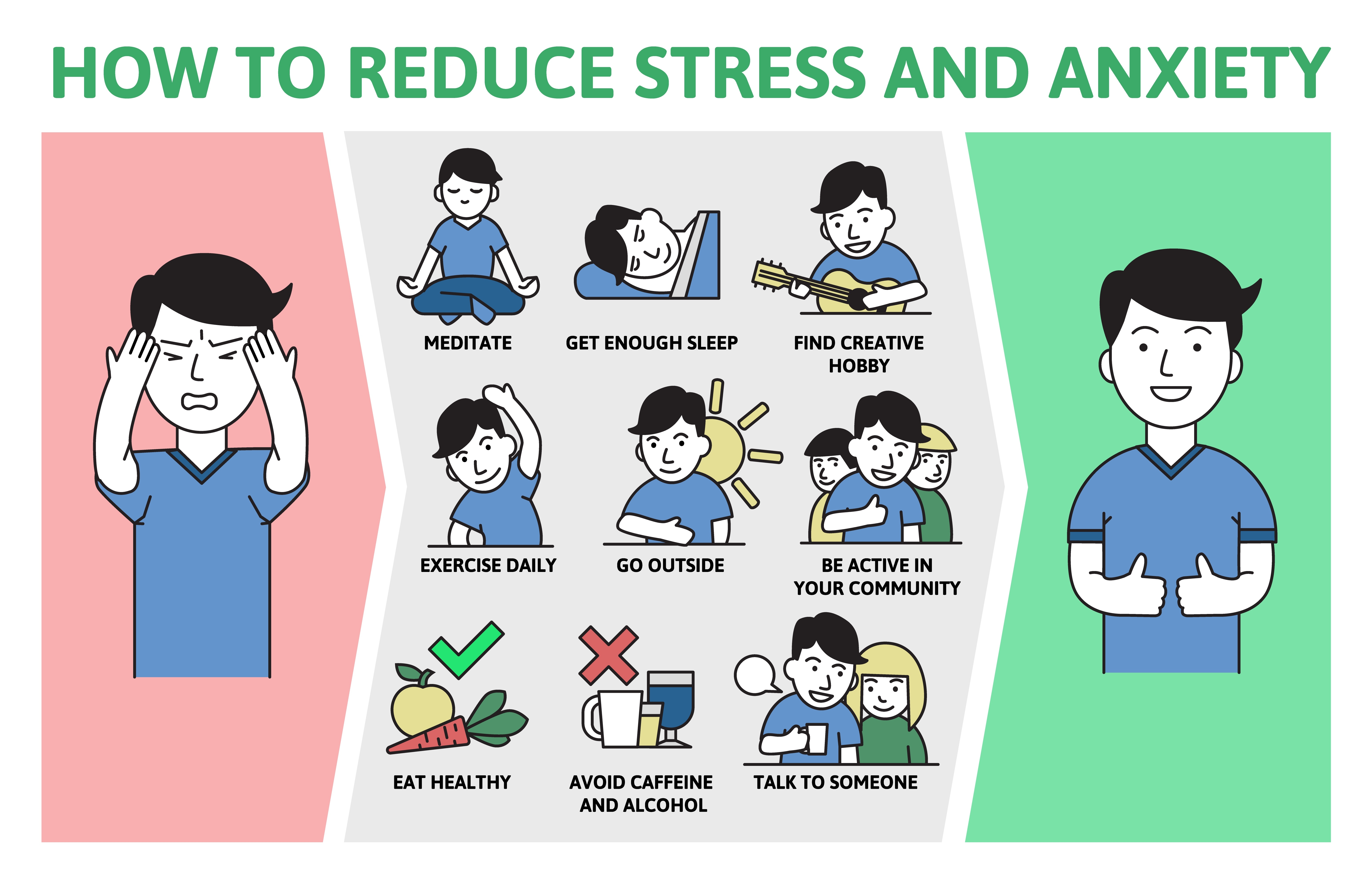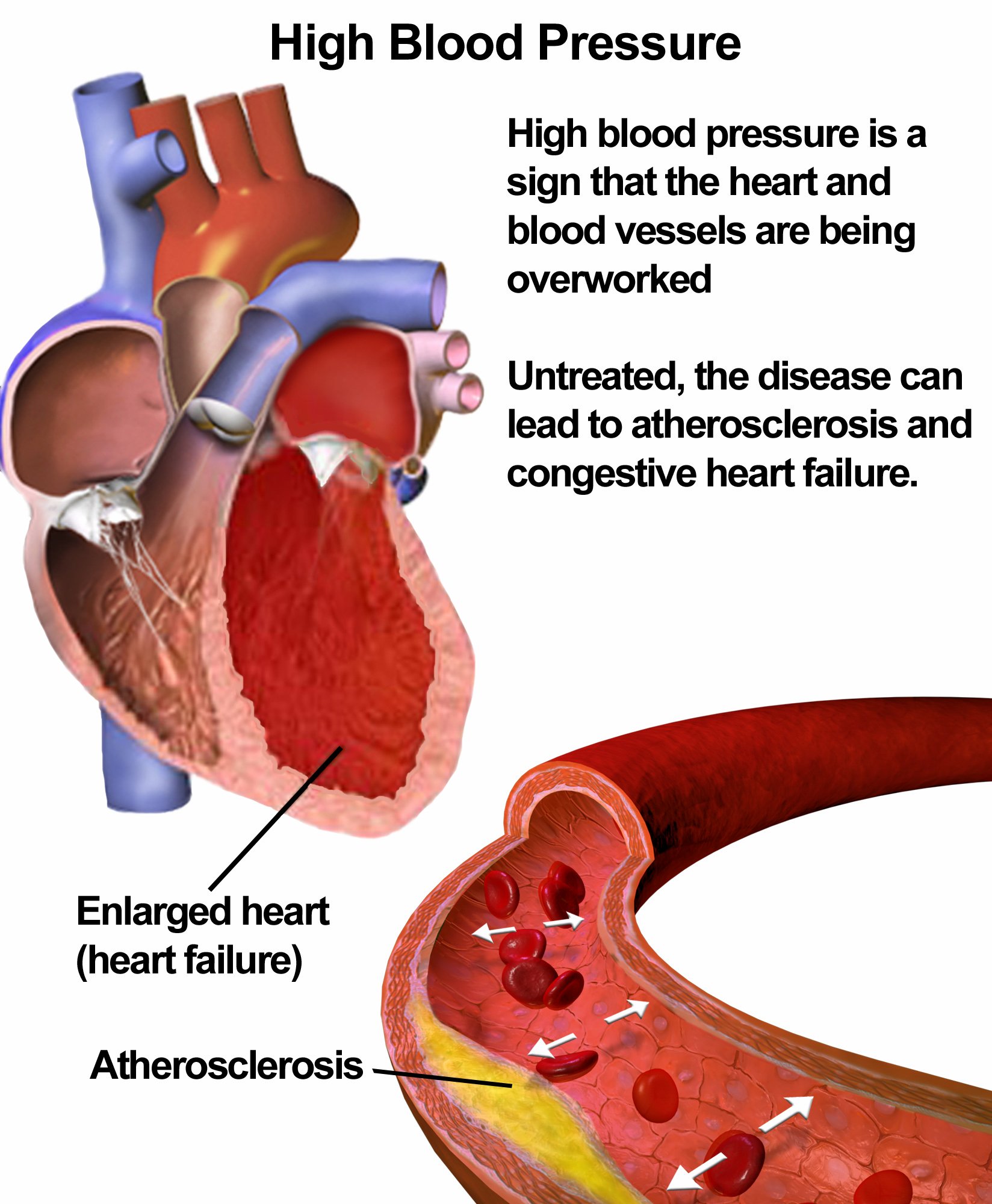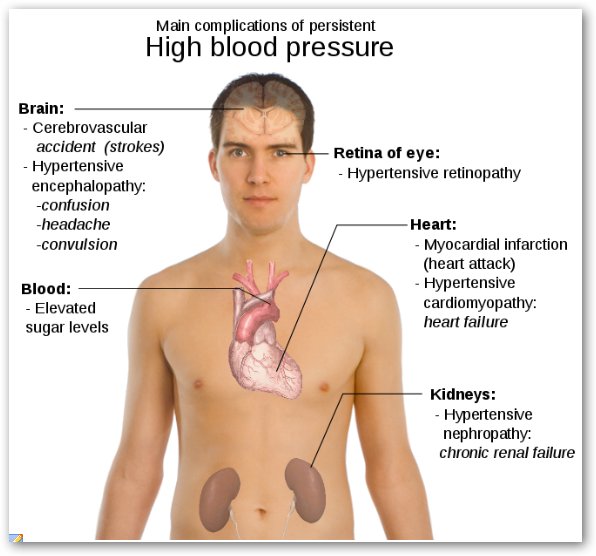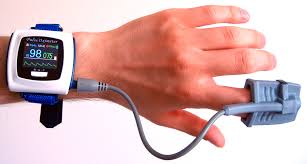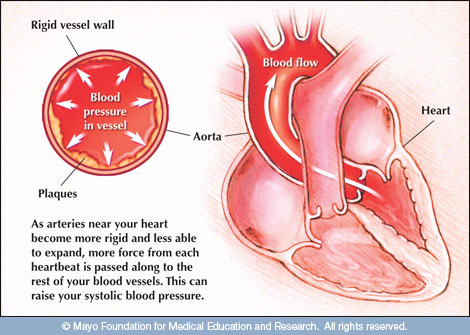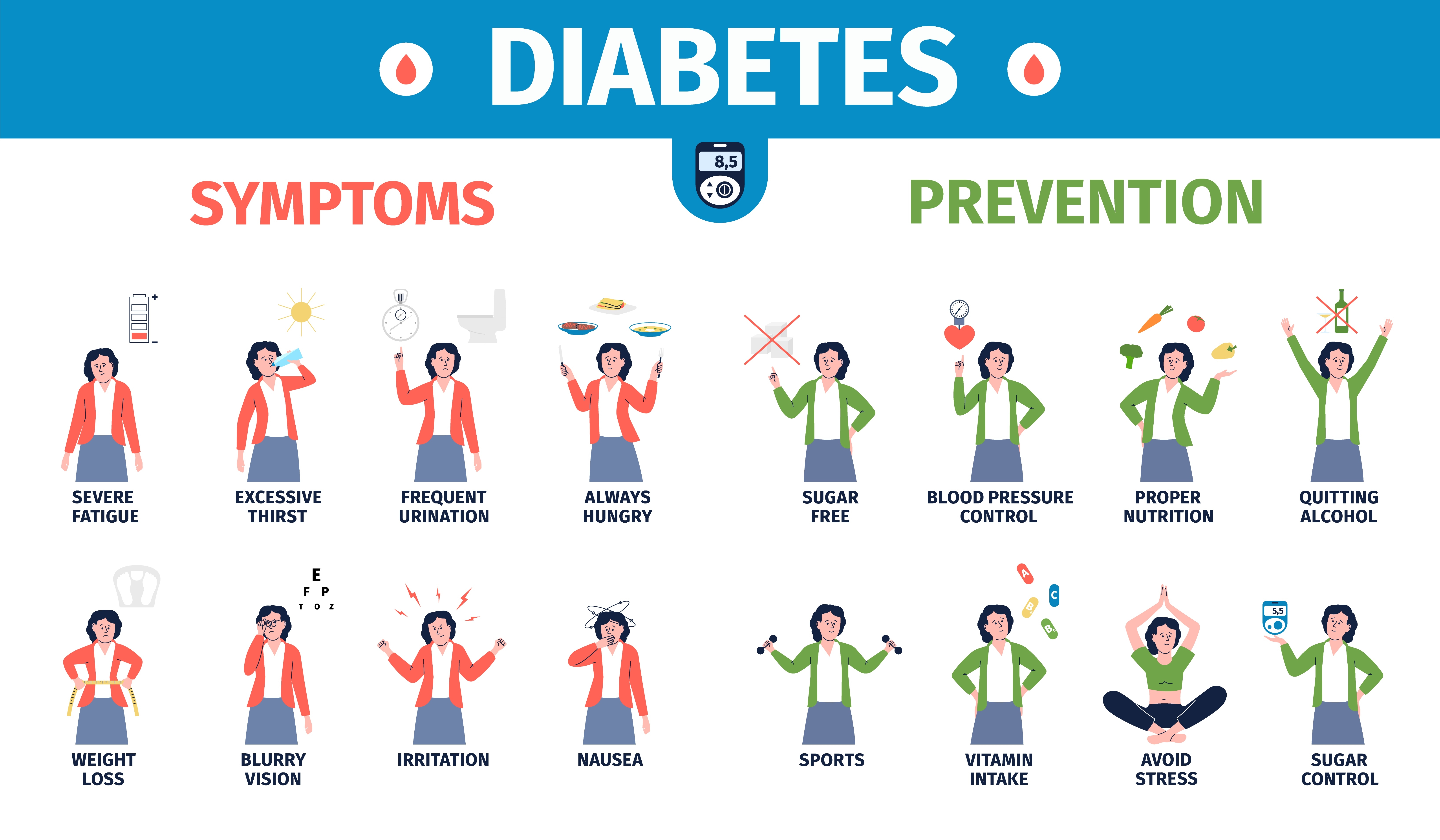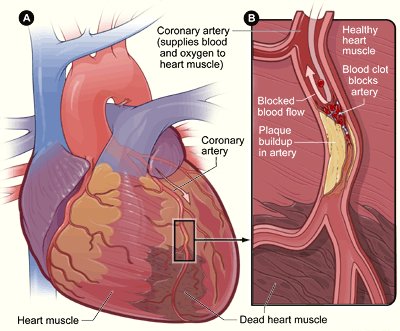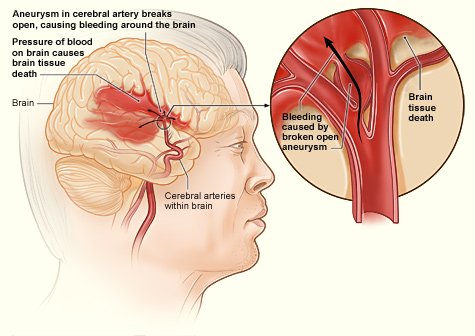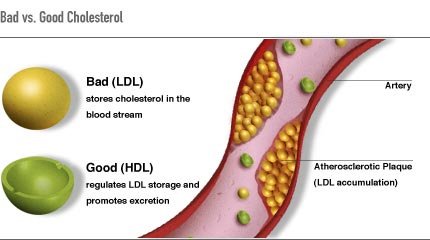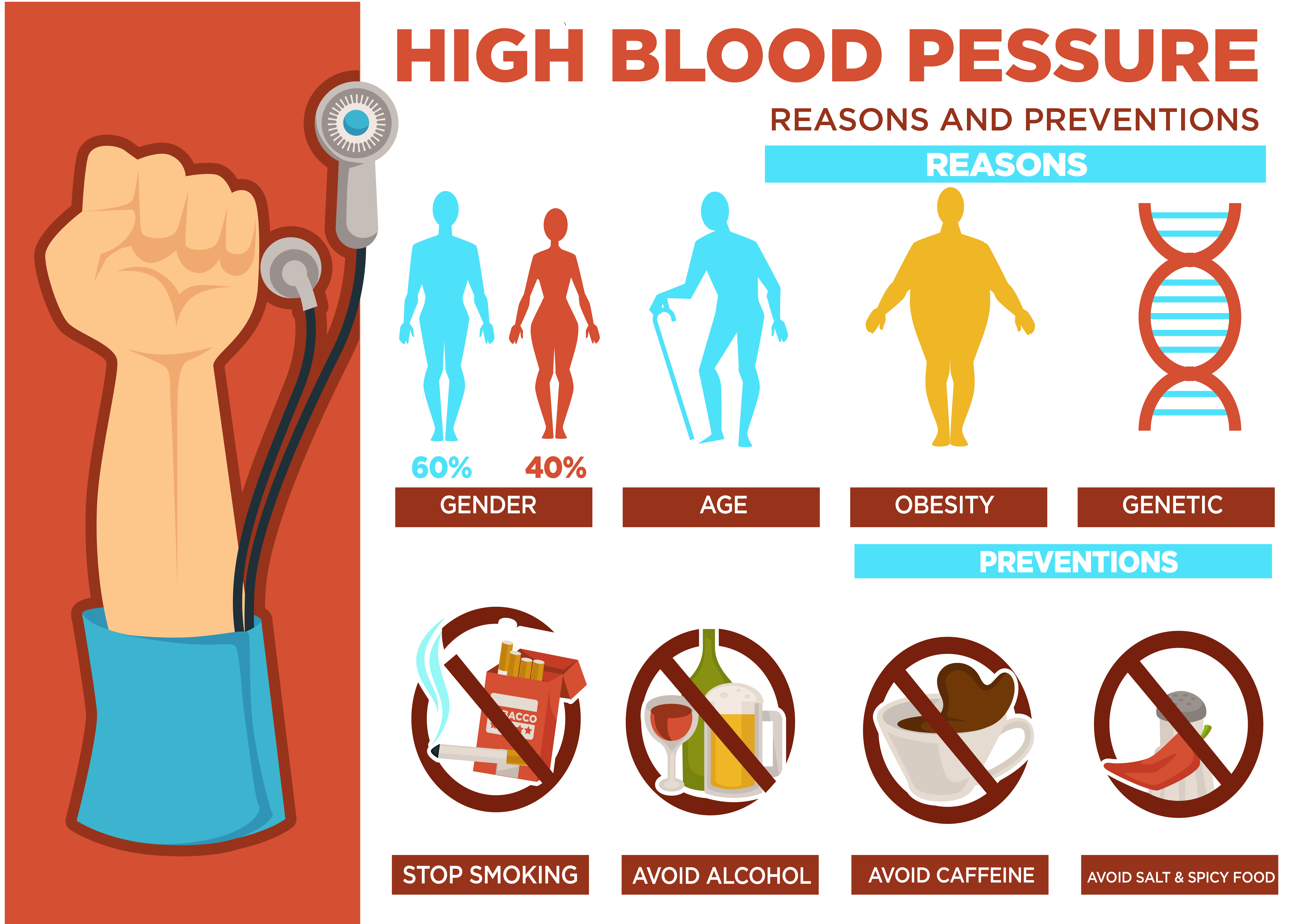Snoring & Obstructive Sleep Apnoea FAQ
いびきと閉塞性睡眠時無呼吸

Question: What is the cause of snoring and should someone be concern about his/her snoring problem?
Snoring is a common problem that we see in our clinical practice. Often times, it is the sleeping partner’s (usually the wife) complaints and frustrations that brought this problem to the patient’s attention.
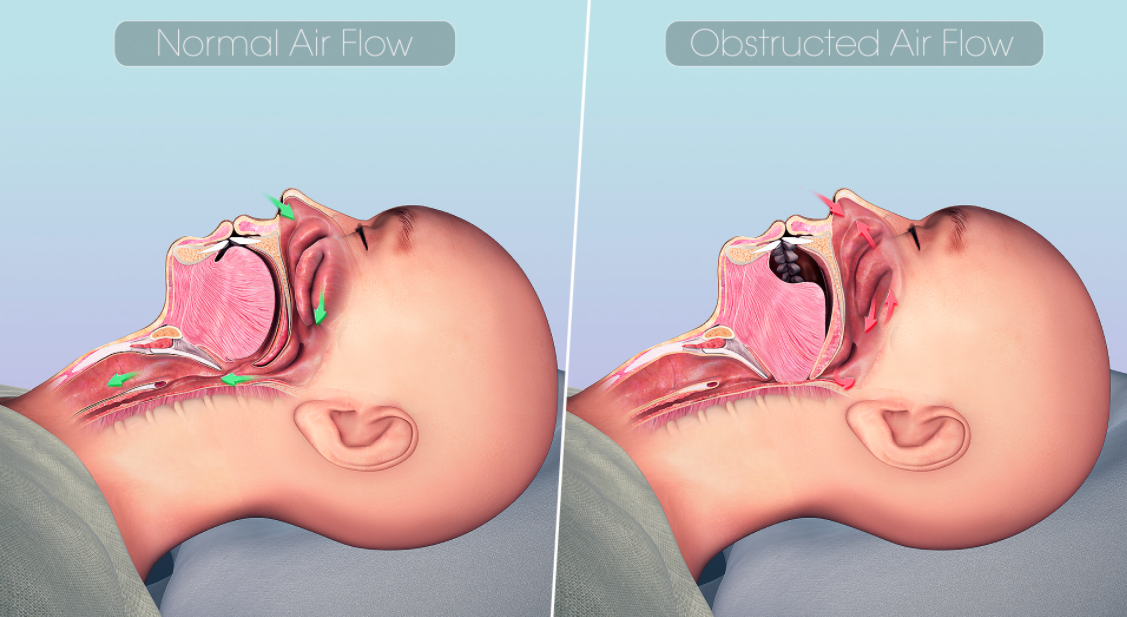
Snoring occurs when there is vibration of tissues in the throat and can be a symptom of partial upper airway obstruction causing noisy breathing during sleep. Sometimes, this partial obstruction can progress to complete upper airway obstruction, and in this instance, patients will have a high chance of suffering from Obstructive sleep apnoea (OSA). OSA occurs when there is recurrent complete or near-complete obstruction of the upper airway when the person is asleep resulting in frequent arousals, lower oxygenation in the blood, and poor-quality sleep.
Question: How prevalent is OSA and what are the risk factors for someone to develop OSA?
The prevalence of OSA in our adult population is estimated to be about 15%. The risk factors associated with OSA include obesity, increased age (generally from middle age & older), male patients, and those with facial & jaw abnormalities.
Common areas of Airway obstruction 气道阻塞的常见区域
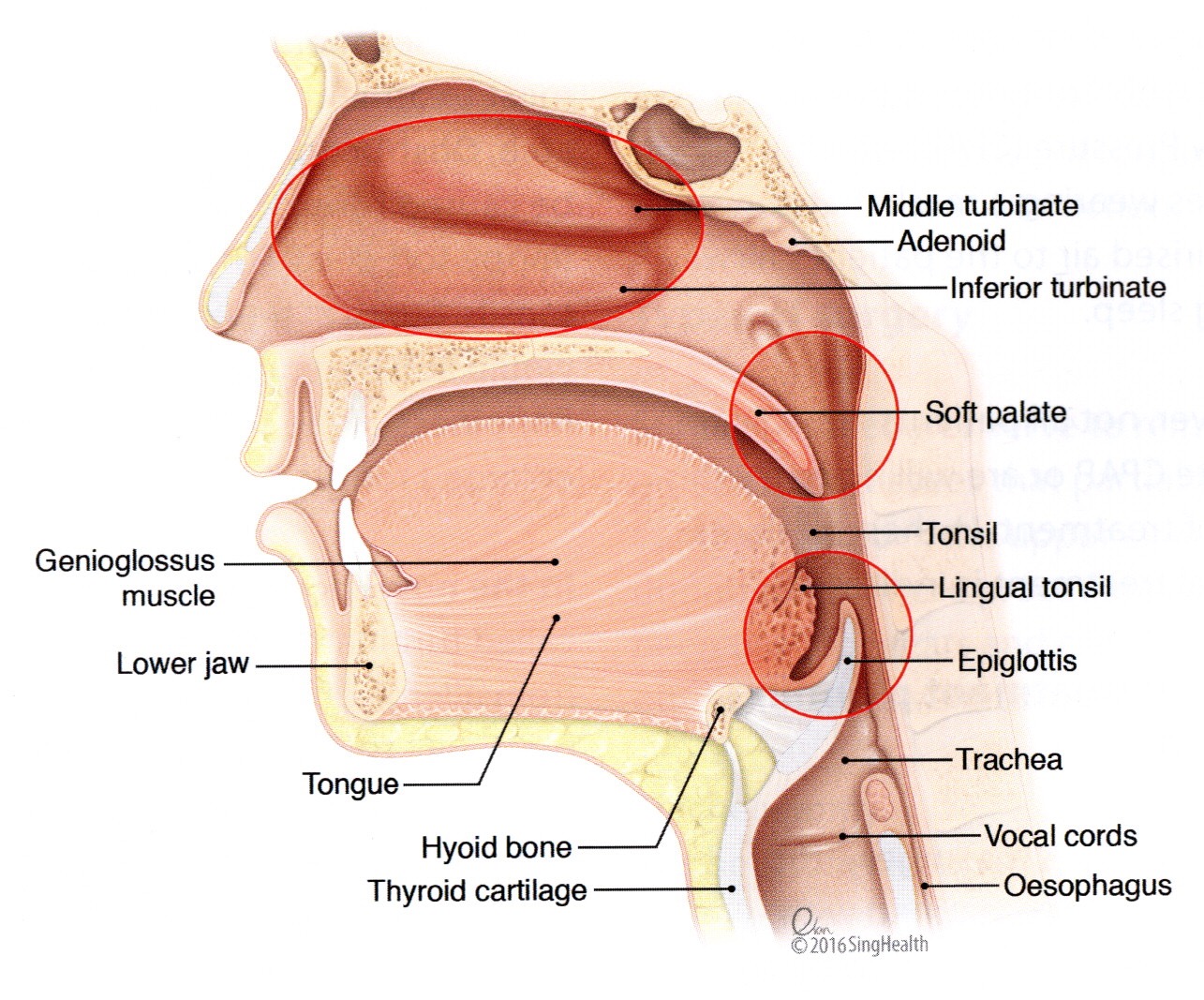
In our clinical evaluation of patients with snoring, it is important for us to differentiate those with just Simple snoring (i.e. not associated with OSA), and those patients that could have OSA. This differentiation is important for 2 main reasons:
(1) the medical consequences & complications; as well as
(2) the treatment approach for these 2 groups are different.
Question: Other than snoring, how do you diagnose someone with OSA?
Besides very loud snoring, patients with OSA will usually have one or more of the following symptoms:
- Excessive daytime sleepiness
- Choking or gasping episodes during sleep
- Feeling unrefreshed (even after supposed ‘enough hours’ of sleep)
- Morning headaches
- Some might also suffer from depression, irritation, decreased libido, poor work performances and are involved in more road traffic accidents.
To help
us to definitively diagnose and quantify the severity of OSA, we would do an
overnight sleep study for patients whom we suspect clinically to be suffering
from this condition. The sleep study is a non-invasive diagnostic test during
which parameters such as breathing effort, blood oxygen levels, heart rhythm
and muscle activity are monitored during sleep.
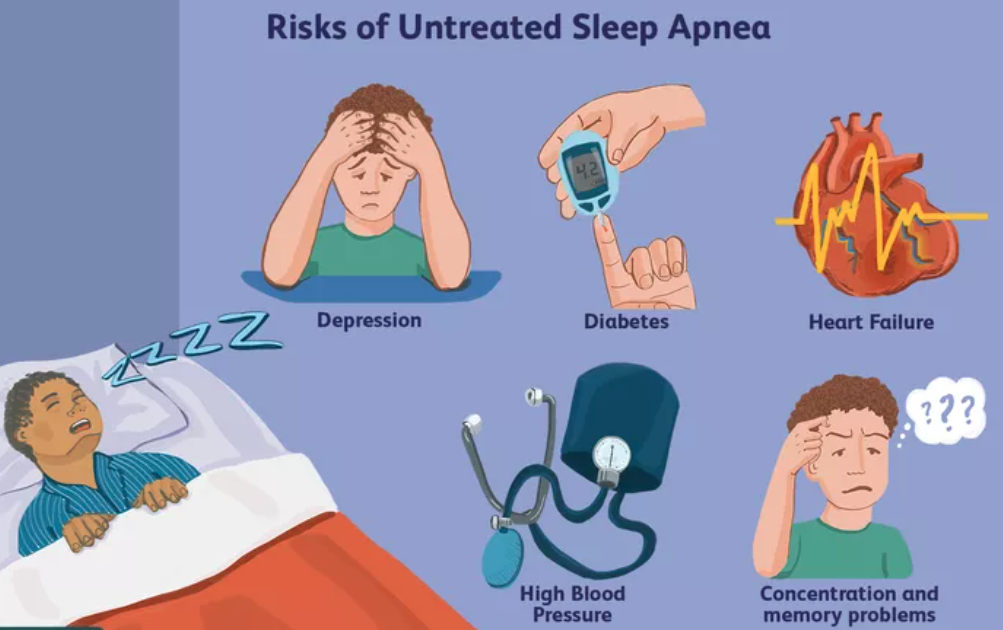
Question: Are there any consequences of not treating someone who has OSA?
We know as a fact that Undiagnosed and Untreated OSA can lead serious medical consequences and complications over time. These include high blood pressure, heart attack, irregular heart rhythm, memory loss, stroke and even sudden death. It is therefore very important that we take the treatment of OSA seriously to prevent the onset of complications.
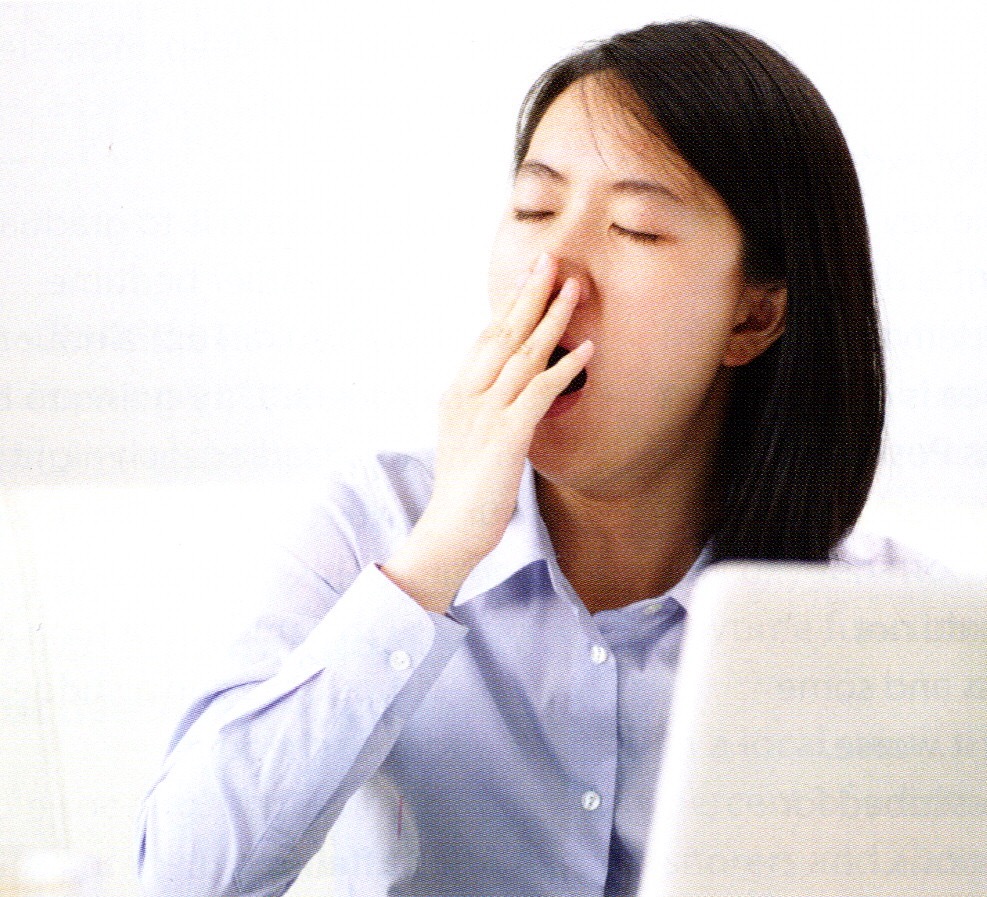 Excessive Daytime Sleepiness |
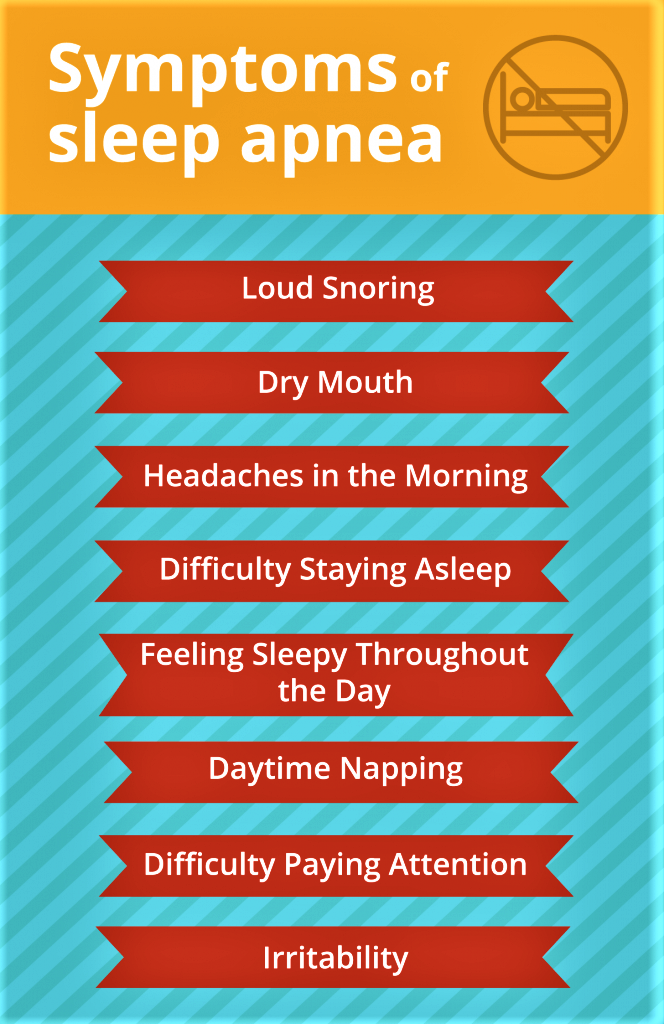 |
Question: How do you treat someone with snoring and OSA?
When it comes to treatment for snoring and OSA, establishing the diagnosis and severity is important because the approach can be different.
For patients with Simple Snoring, the treatment usually starts with more conservative measures such as weight loss, avoidance of alcohol & sedative medications, relieving nasal obstruction & congestion, and advising patients to sleep on their side rather than on the back. If the problem persists, then surgery of the soft palate and/or the nasal septum & inferior turbinates (to improve nasal airflow) can help our patients.
As for the treatment for OSA, it largely depends on the severity.
|
Sleeping on your side for Sleep Apnoea & Snoring 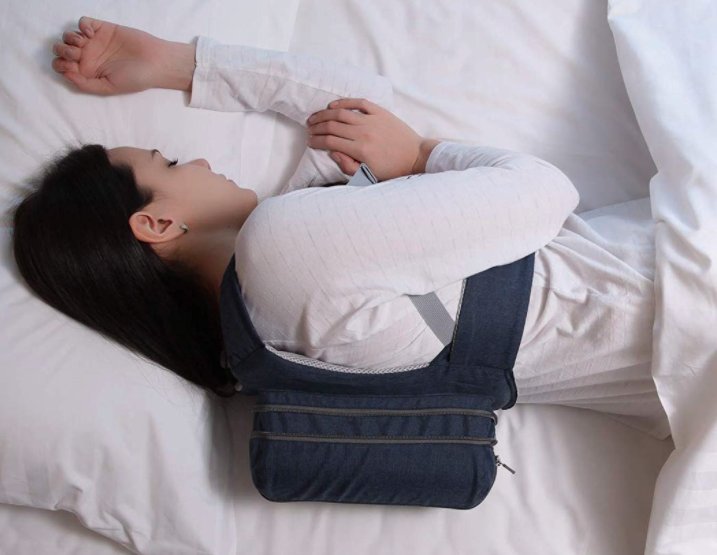 |
Continuous Positive Airway Pressure - CPAP Therapy 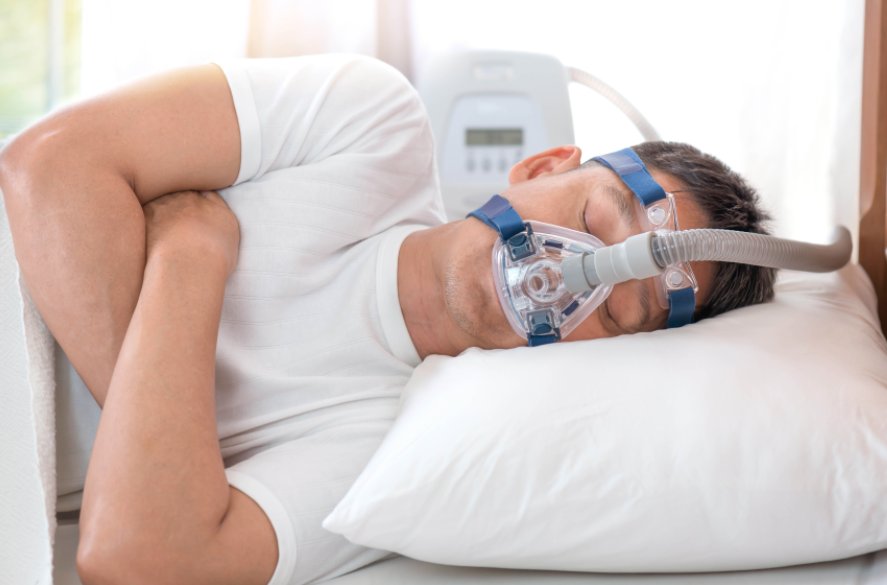 |
Question: So, how do you treat OSA with different severity?
For patients with mild OSA, we would generally advise similar treatment measures as mentioned above for snoring. In addition, we would monitor our patients closely to assess its effectiveness and also for progression of OSA or onset of complications. Depending on clinical response and treatment compliance, we would discuss other therapeutic options (such as jaw/tongue exercises, dental appliances or surgery) with patients.
For patients with Moderate or Severe OSA, we would also recommend a medical device called Continuous Positive Airway Pressure (CPAP). What CPAP does is to deliver room air to the nose and back of the throat at a slightly elevated pressure to prevent the airway from collapsing during sleep. Effectively, it works like an “air-splint” to keep the airway open. CPAP is safe, highly effective and generally well-tolerated. Notwithstanding, we understand some patients may have concerns and experienced initial hiccups using the CPAP, but it is important to persevere and work with your care providers to optimize the use of CPAP.
Question: What if the patient, despite trying very hard, still cannot tolerate or unable to use CPAP effectively?
We
understand that despite best efforts, there are some who may not tolerate CPAP
well or may have conditions (such as nose block) which makes it difficult to
use the CPAP effectively. For this group of patients, surgery may be an option
to consider. However, I must also highlight that surgery for the upper airway
to treat OSA is complex and it is best to speak to your ENT specialist to
discuss the options available and work out an appropriate treatment plan.
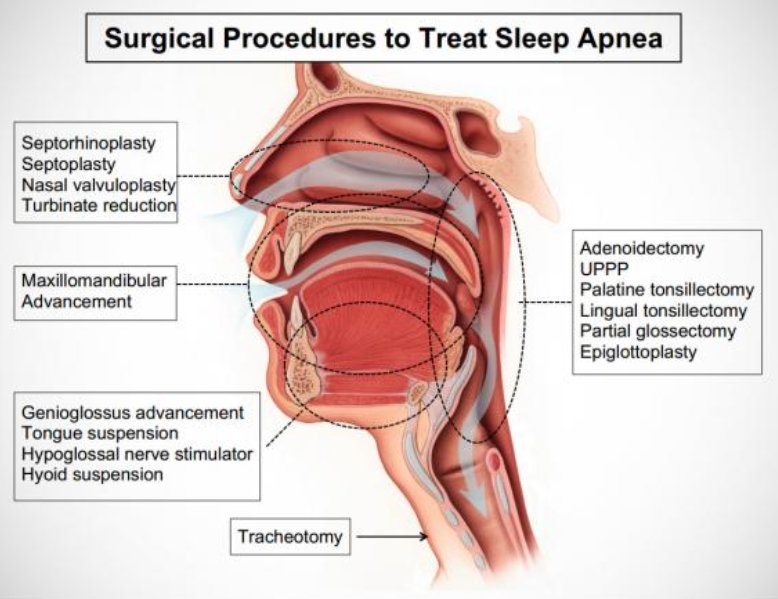
Question: What are the different types of surgery for patients with OSA?
In general, the various types surgery for OSA would include the following:
(a) Nasal surgery - this is mainly to correct deviated nasal septum and enlarged inferior turbinates. This would help to address the problem of nasal obstruction.
(b) Palatal surgery - surgery to the soft palate, tonsils and the immediate surrounding areas with the aim to enlarge the narrow airway at the palatal level.
(c) Hypopharyngeal and Base of tongue surgery - surgery in this region is quite complex. This will involve removing tissue in the hypopharynx, reducing the tongue size and increasing the tension on the tongue to give the airway more room and space.
(d) Skeletal or bone surgery of the jaw - these are complex and aggressive surgical procedures. It generally involves forward movement of the lower jaw and the mid-face to create more space for the tongue. This helps to open up the upper airway and prevent its collapse during sleep.
Question: For someone suffering from significant snoring problem, what would be your advice?
If your snoring is persistent and possibly getting worst, I would advise you to see an ENT specialist to have a proper evaluation and to exclude OSA. We know that OSA if left undiagnosed and untreated, can lead to serious medical complications. If you do suffer from OSA, it is best to discuss with your doctor about the treatment options available and work out a treatment plan which is suitable for you.
Dr Kang Wee Lee - ENT (Visiting Consultant)
· MBBS(NUS), MMed(ORL), MRCSEd, FAMS(ORL), DFD(CAW)
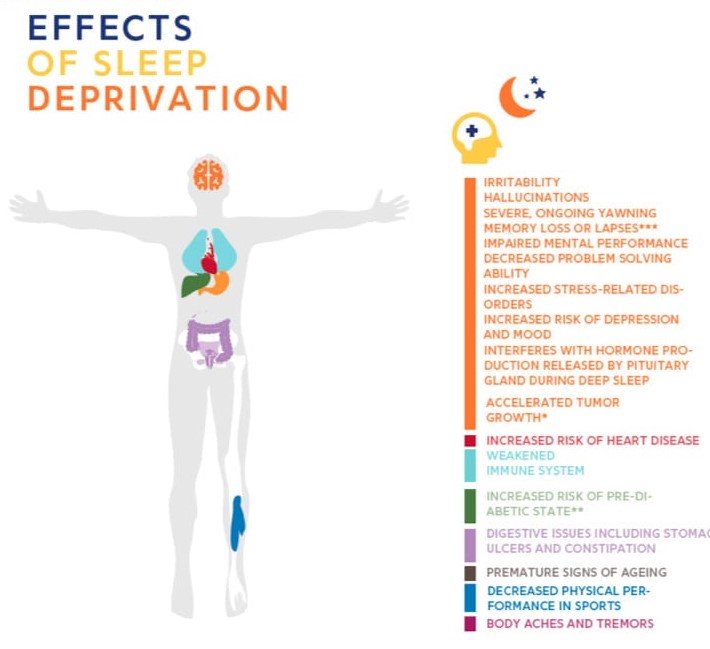
Hypertension Symptoms & Treatment, Blood Pressure monitoring, BP Chart
Vitamins & Nutrients for a Well-functioning Immune System to Protect against COVID-19 & other Viral Infections
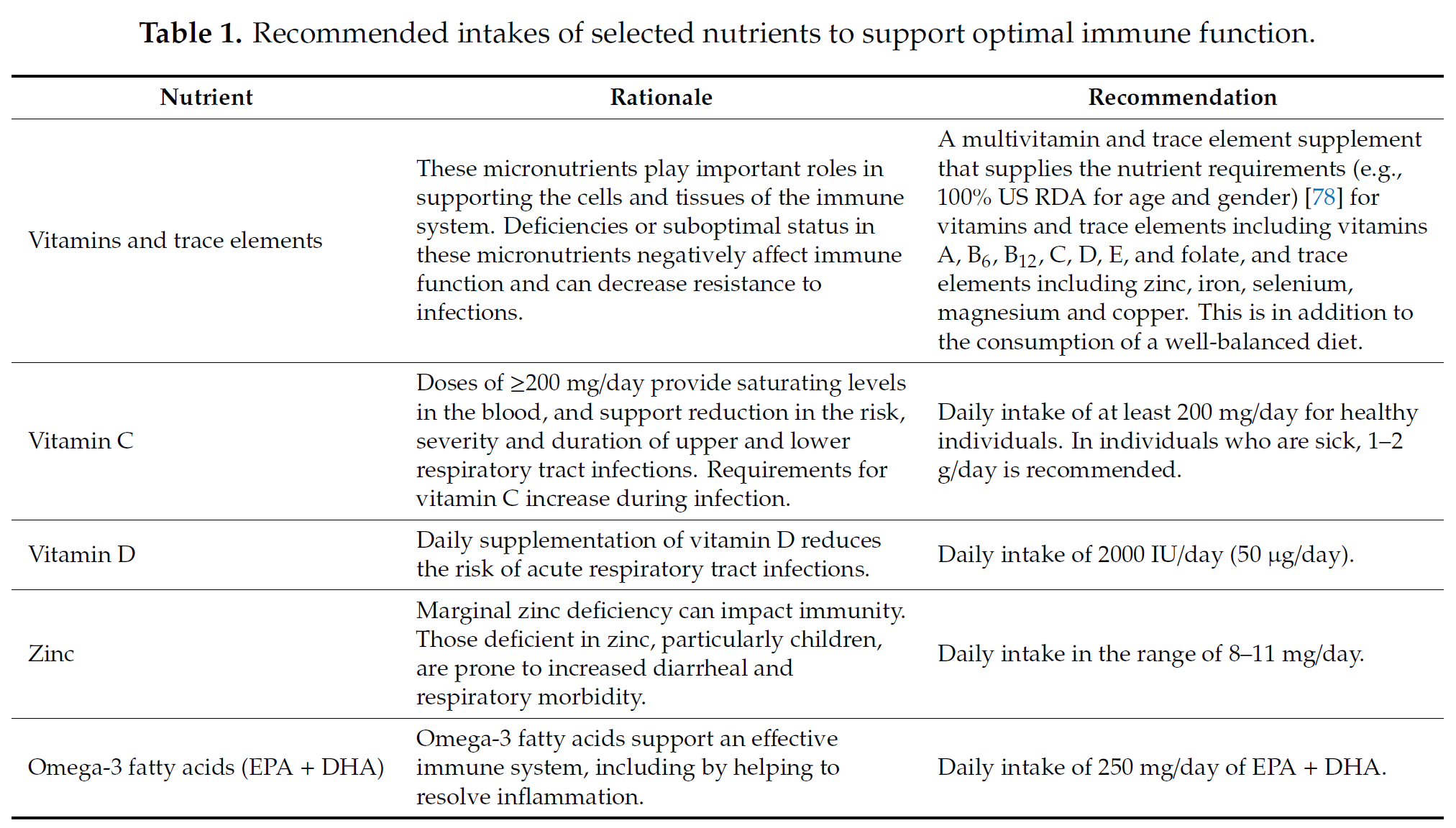
(Ref: Nutrients. 2020 Apr 23;12(4). pii: E1181. doi: 10.3390/nu12041181 Optimal Nutritional Status for a Well-Functioning Immune System Is an Important Factor to Protect against Viral Infections Calder PC1, Carr AC2, Gombart AF3, Eggersdorfer M4.
Heart Health - Coronary Heart Disease, Learn what is Angina and Stroke, as well as How to Lower Cholesterol
The information provided in this website is for knowledge purposes only. It does not constitute medical advice.
Should you encounter any medical problem that you are unsure of, always consult your doctor or health care provider for assistance and medical advice.
